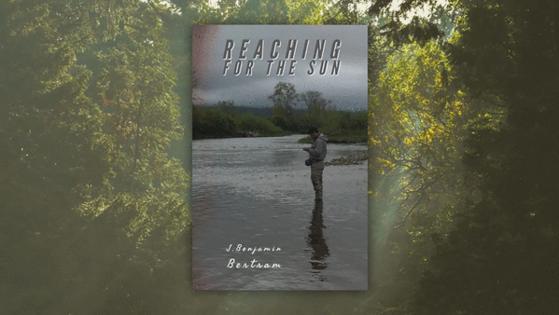Tender memoir chronicles the addiction struggles of a loved one
Published in Mom's Advice
There’s a beautiful quote from Norman Maclean in his book, "A River Runs Through It," that says:
“We can seldom help those closest to us. Either we don’t know what part of ourselves to give or the part we have to give is not wanted. And so, it is those that we live with and should know who elude us. But we can still love them — we can love completely without complete understanding.”
It’s a quote referred to by author J. Benjamin Bertram in his riveting life story "Reaching for the Sun" that so perfectly captures the disposition of the author in an attempt to save his younger brother Ethan from addiction and mental health.
Ethan’s plight is hardly unique. Statistics indicate that more than 50 million Americans suffer from some mental health condition, 27 million from drug abuse and 8 million from alcohol addiction. Some of those cases have been well-documented and dramatized. But most of them, while adding to the overall statistic, represent very real and difficult journeys for the struggling individuals and their families trying to handle the situation on various levels.
Bertram’s book offers a poignant description of what can happen when a family member battles his inner demons. He presents a realistic narrative of growing up on a small farm village in Nova Scotia with his parents, Ethan and sister Andrea. When Ethan starts drinking in excess in high school, does his family step in or walk on eggshells wondering whether this is typical of this age group?
Sometimes you want to deny what your eyes are telling you.
At one point, when Ethan reports to his mother that his car was broken into and his money stolen, she chalks it up to his being in a bad neighborhood.
But the exasperated author explains to his mother, “He spent the money on drugs. He’s getting high every day! Think about how many of these stories he’s told you!”
The heartbreak of it all is that Ethan is described as a good kid and experiences apparent joy in many of life’s adventures — including flyfishing with his brother and hence the reference to A River Runs Through It. He seems a loving boy, and is loved by his brother, who does what he can to help, but, as the quote indicates, without complete understanding.
There is the struggle for outward normalcy — Ethan is a talented carpenter and landscaper. But too often he bounces from job to job and one living situation to another, in and out of rehab facilities all offering a fresh outlook and new hope, and at some point he finds himself homeless.
But there was the author, as supportive as he thought he could be, doing what he thought made sense. Yet it was impossible to get that complete understanding.
“Ethan was always loved, but he lacked love for himself.”
Perhaps that was the root of it.
“He lacked purpose. As he was finally finding his purpose, his body and mind had already begun to inhibit his ability to pursue it.”
“His mind was beginning to unravel in ways we had not begun to imagine.”
In Reaching for the Sun, J. Benjamin Bertram tells in plain, raw language about the complications and emotions of someone undergoing devastating pain and seeking relief by diving even deeper into its spell. It is a troubling story to tell, and a difficult but important one to digest — for anyone who could never understand what people affected by addiction and mental health are going through and the effect that condition has on the person’s loved ones.
Bertram opens his work by touchingly describing what an old tree has endured over the ages, including its fallen limbs. “How through it all you look out upon this dying tree, telling the story of all it endured and still you will see the last green limb, reaching for the sun. Striving unto its last to bring color into the world.”










Comments